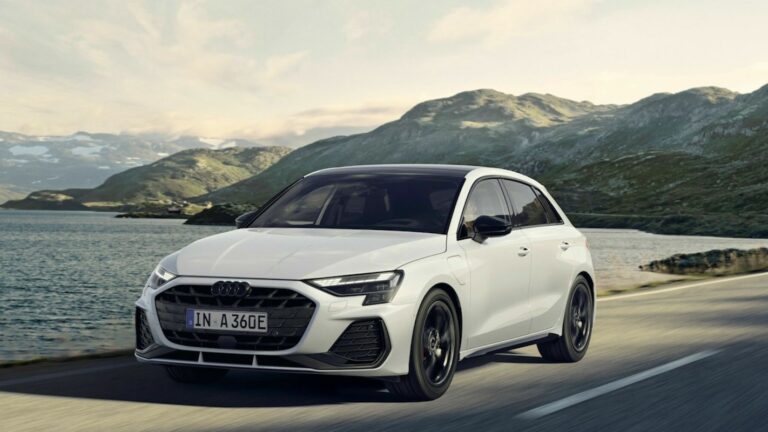Audi’s Electric Future: Compact and Affordable EV on the Horizon
Audi is making significant strides in expanding its electric vehicle (EV) lineup with the introduction of its most compact and affordable model yet. The new entry-level EV, similar in size to the ICE-powered Audi A3, is set to be smaller and more budget-friendly than the Q4 e-tron. This development could provide the necessary momentum for Audi to make premium EV ownership accessible to a broader audience.

While leveraging the current platform for its upcoming compact crossover, Audi is also working alongside Volkswagen to develop a next-generation, EV-dedicated platform. This new platform, expected to launch between 2028 and 2029, aims to further reduce production costs. The compact crossover is slated to debut in 2026, with production at Audi’s Ingolstadt plant, and will be fully available by 2027 at the latest.
This move represents a significant shift in the EV market as luxury brands like Audi tackle affordability concerns head-on. The new compact electric vehicle is poised to benefit consumers looking to transition to electric driving, particularly those seeking a luxury car with a reasonable price tag. EVs offer long-term savings for consumers, with fewer moving parts to repair, no oil changes required, and reduced fuel costs. Additionally, drivers can enjoy a quieter and smoother ride while eliminating tailpipe pollution.
Despite facing challenges in increasing EV sales compared to some competitors, Audi remains committed to its EV expansion. While the brand aims to become fully electric by 2032, company leaders have indicated a willingness to adjust their plans in response to evolving market demands.
As Audi pushes forward with more affordable EV options, drivers can anticipate a cleaner, more cost-efficient future on the road. For those considering an eco-friendly upgrade, now is an opportune time to make the switch to an electric vehicle. With ongoing concerns about the environmental impact of battery production and mining materials, it’s worth noting that the annual extraction of 16.5 billion tons of fossil fuels far exceeds the 30 million tons of minerals required for clean energy technologies. Moreover, the minerals used in EV batteries can often be recycled and reused, unlike fossil fuels which are lost forever when burned.



